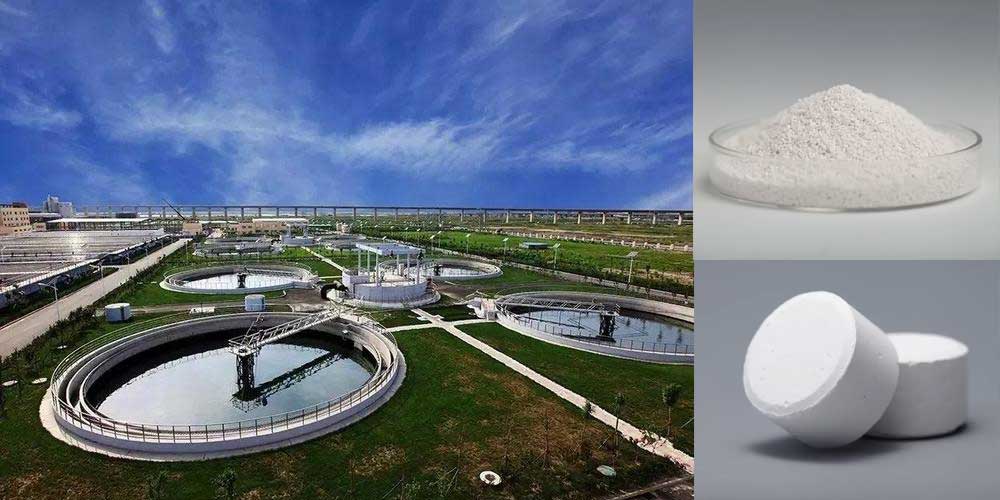Sodium dichloroisocyanurate (SDIC) stands out as a versatile and efficient solution. This compound, with its potent antimicrobial properties, plays a crucial role in ensuring the safety and cleanliness of water resources. Its effectiveness lies in its ability to act as a powerful disinfectant and oxidizing agent. Here’s a comprehensive look at its application in wastewater treatment:
1. Disinfection:
Pathogen Removal: SDIC is widely used to kill bacteria, viruses, and other pathogens present in wastewater. Its chlorine content helps in destroying harmful microorganisms effectively.
Prevents Disease Spread: By disinfecting wastewater, SDIC helps prevent the spread of waterborne diseases, safeguarding public health.
2. Oxidation:
Organic Matter Removal: SDIC aids in the oxidation of organic pollutants present in wastewater, breaking them down into simpler, less harmful compounds.
Color and Odor Removal: It helps in reducing the color and unpleasant odor of wastewater by oxidizing organic molecules responsible for these characteristics.
3. Algae and Biofilm Control:
Algae Inhibition: SDIC effectively controls algae growth in wastewater treatment systems. Algae can disrupt the treatment process and lead to the formation of unwanted by-products.
Biofilm Prevention: It helps prevent the formation of biofilms on surfaces within wastewater treatment infrastructure, which can reduce efficiency and promote microbial growth.
4. Residual Disinfection:
Persistent Disinfection: SDIC leaves a residual disinfectant effect in treated wastewater, providing ongoing protection against microbial regrowth during storage and transportation.
Extended Shelf Life: This residual effect extends the shelf life of treated wastewater, ensuring its safety until it is reused or discharged.
SDIC exhibits excellent efficacy over a wide range of pH levels and water temperatures, making it suitable for diverse wastewater treatment applications. Whether treating industrial effluents or municipal sewage, SDIC provides consistent and reliable disinfection performance. Its versatility extends to various treatment processes, including chlorination, disinfection tablets, and on-site generation systems.
In conclusion, sodium dichloroisocyanurate emerges as a highly effective and practical solution for Wastewater Disinfection. Its potent antimicrobial properties, stability, versatility, and environmental benefits make it a preferred choice for ensuring water safety and cleanliness.
Post time: Apr-12-2024

